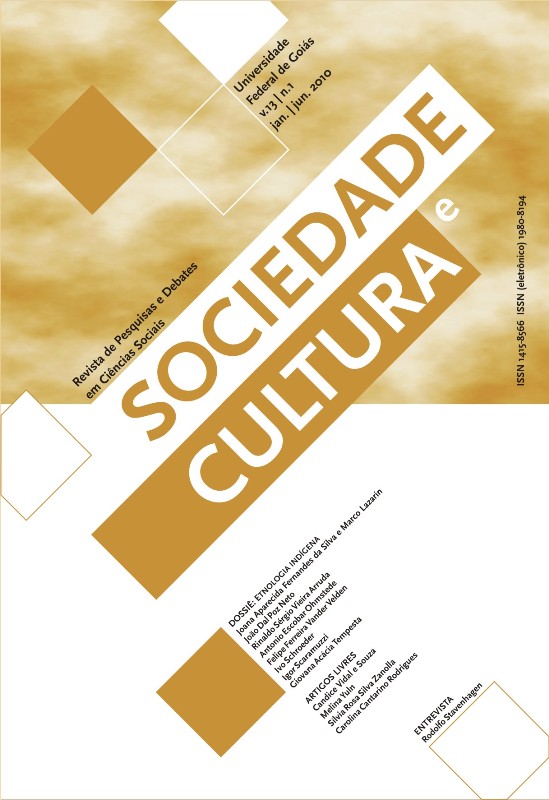Living as a relative: notes on the conception of person and the social organization of the apiaká
DOI:
https://doi.org/10.5216/sec.v13i1.11176Keywords:
Apiaká indians, social organization, concept of the person, witchcraft accusations.Abstract
In this paper, I’ll discuss how the Apiaká Indians person’s conception articulates with their social organization. The Apiaká are a Tupi-Guarani speaking people that inhabit the region of the Tapajós River basin, in the southeastern Amazonia. The historic and ethnographic data presented show that, despite the devastating effects of the Amazonian rubber boom, there is a sociocultural continuity due to the regional social system which articulates Apiaká, Kaiabi Indians and Munduruku Indians. Such continuity, whichintegrates the “familiarizing predation” model (Fausto, 2000; 2001) may be apprehended through the analysis of the local morality and of the witchcraft accusations.
Downloads
Download data is not yet available.
Downloads
Published
2010-08-31
How to Cite
TEMPESTA, Giovana Acácia. Living as a relative: notes on the conception of person and the social organization of the apiaká. Sociedade e Cultura, Goiânia, v. 13, n. 1, p. 91–99, 2010. DOI: 10.5216/sec.v13i1.11176. Disponível em: https://revistas.ufg.br/fcs/article/view/11176. Acesso em: 17 feb. 2026.
Issue
Section
Thematic Dossier
License
Authors who publish in this journal agree to the following terms:
- Authors retain the copyright and grant the journal the right of first publication, the work being simultaneously licensed under the Creative Commons Attribution License, which allows the sharing of the work with acknowledgment of authorship and of the initial publication in this journal;
- Authors are authorized to enter into additional contracts separately, for non-exclusive distribution of the version of the work published in this journal (eg, publishing in an institutional repository or as a book chapter), with acknowledgment of authorship and of the initial publication in this journal;
- Authors are allowed and encouraged to post and distribute their work online (eg, in institutional repositories or on their personal page) at any point before or during the editorial process, as this can bring productive change as well as increases the impact and the citation of the published work (see O Efeito do Acesso Livre).



